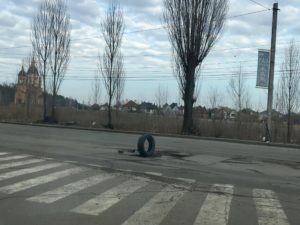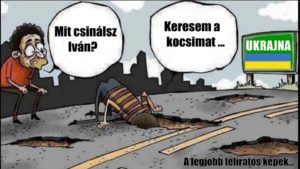Peacemaking
Since the 2014 Ukrainian “Revolution of Dignity” and subsequent invasion by Russia, peacemaking has become central to the work we are doing here. When we think of peacemaking, we think of it in the context of reconciliation. In order to achieve true reconciliation and lasting peace, we need to begin with understanding what God’s original intent was for humanity. God has existed in eternal, perfect fellowship. Inside the relationships of the Holy Trinity there was no envy, no pride, no selfishness – it was perfect love, joy and peace. And that is exactly why God created humanity. In his perfect relationship of love, God’s desire was to share that same relationship with all of humankind. God wanted to open the circle of the Trinity and invite us to join in their eternal, perfect embrace.
But, as we all know much too well, sin destroyed God’s good plan for humanity. Sin led to prejudice, which has distorted all of our relationships. Now, instead of enjoying the incredible unity in diversity that God intended for his world, we approach the other with fear. Instead of approaching the other as one who reflects the glory of the God in ways different and unique from my group, our wounds lead us to see others as threats or as inferior – less worthy than our own group. Instead of the unity in diversity that God desired, we have prejudice, division, fear and hatred.
John 10:10 says, “The thief has come to steal, kill and destroy….” The thief has come to every ethnic group, and even to each person. We have all suffered losses at the hands of the thief. We have all been wounded. And wounded people wound others.
Thankfully, Jesus has given us an answer to our woundedness! At the cross, Jesus not only bore our sin, but also bore our wounds (see Isaiah 53). On the cross Jesus bore not only the sin of the world, but also all the consequences of that sin. By bringing the pain of our own personal wounds and also the pain of the wounds of our ethnic group to the cross of Christ we can find healing that frees us to be able to forgive the offender or seek forgiveness from our victims. And then we can find true, lasting reconciliation and peace.
In Ukraine, we have been leading workshops taking people through this process for two years now. God has been doing a miraculous work of healing, reconciliation and building toward peace in this great nation. This is central to our mission as “ministers of reconciliation” (2 Corinthians 5:18). It also opens the door to the abundant life Jesus desires for each of us (look at the second half of John 10:10) – a life of celebrating unity in our glorious, God-given diversity.
Roads?
Just Google “roads in Ukraine” and you’ll see plenty of examples of what we are experiencing every day right now. Traffic comes to a standstill in order to crawl through and around the numerous patches of potholes that stretch across the road. Some SUV drivers prefer to take the median than stick with the road.

One of my favorite Facebook posts is of a guy staring into a hole in the road. His friend asks, “What are you doing, Ivan?” and he answers, “Looking for my car.” If it only weren’t so true!

One Ukrainian news source stated that 90% of Kyiv roads are in disrepair. Bring on the road repair crews! We’ll be appreciative of that kind of lane closure!
